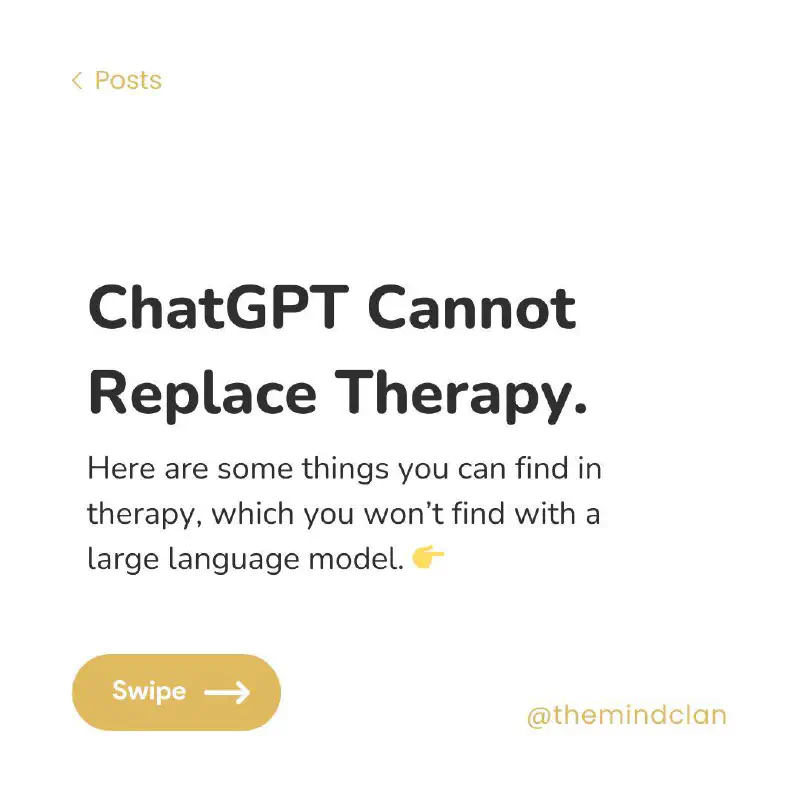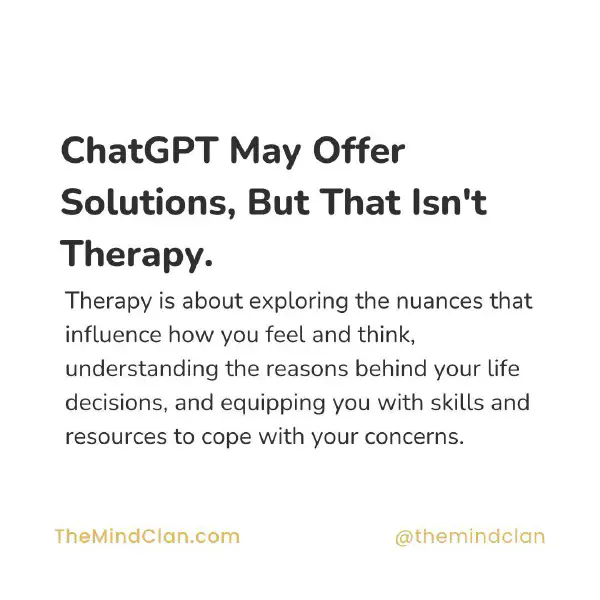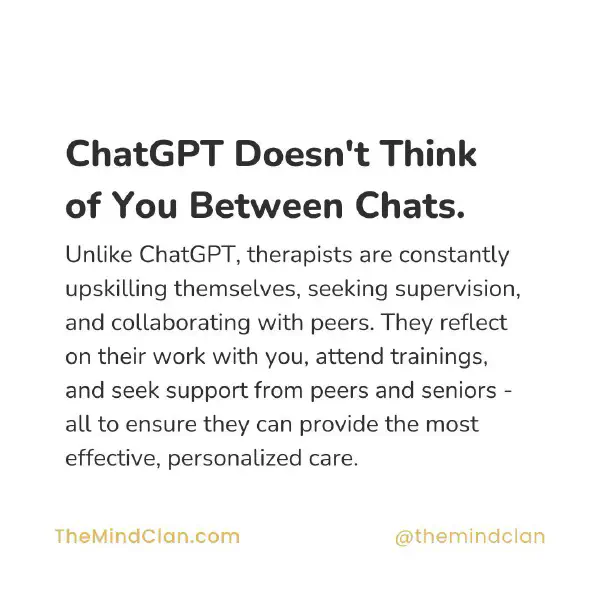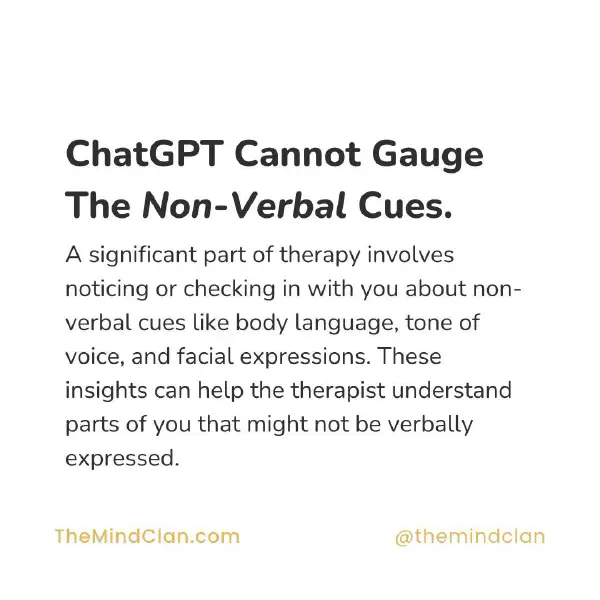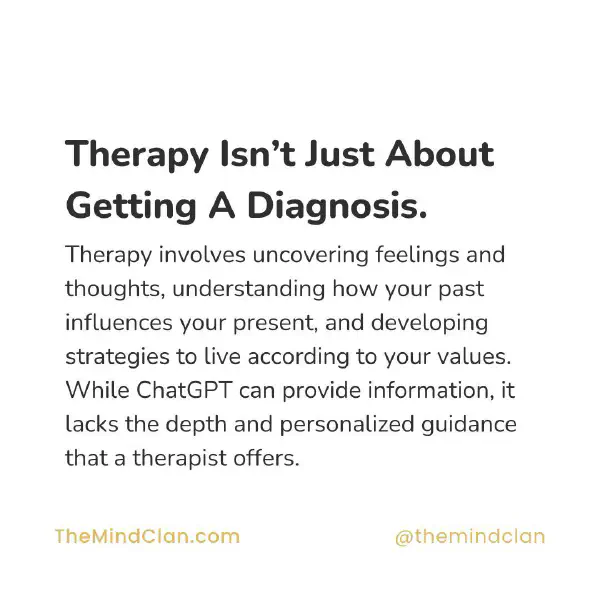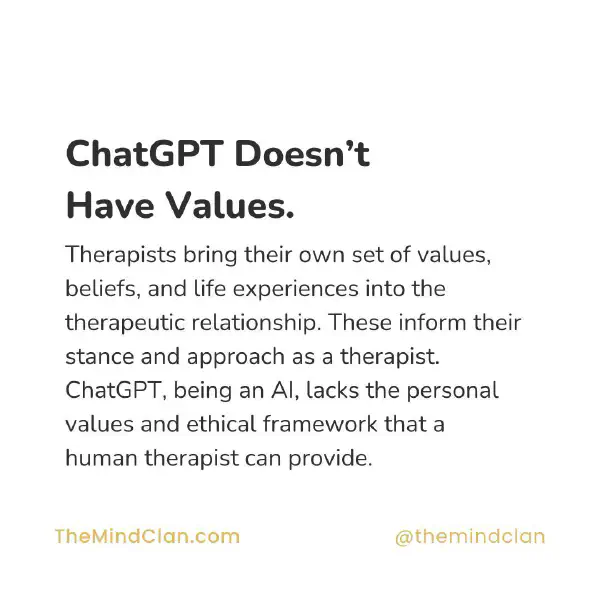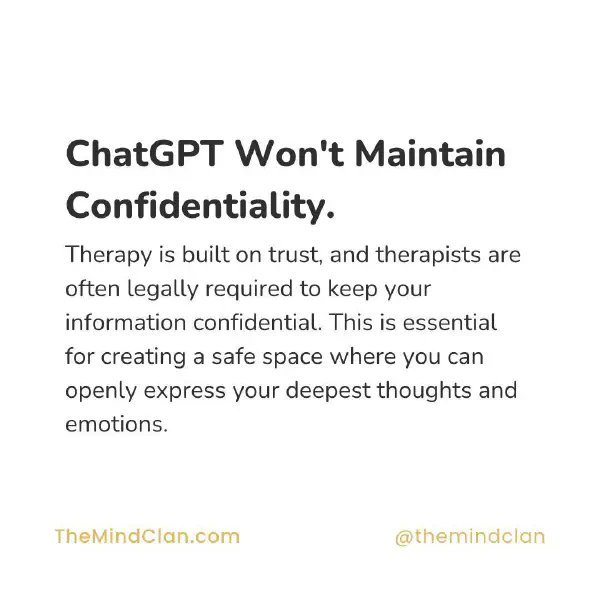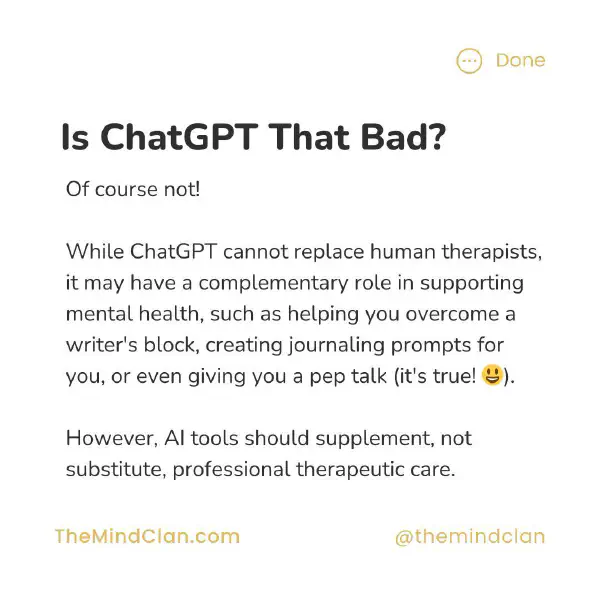ChatGPT May Offer Solutions, But That Isn’t Therapy.
Therapy is about exploring the nuances that influence how you feel and think, understanding the reasons behind your life decisions, and equipping you with skills and resources to cope with your concerns.
ChatGPT Doesn’t Think of You Between Chats.
Unlike ChatGPT, therapists are constantly upskilling themselves, seeking supervision, and collaborating with peers. They reflect on their work with you, attend trainings, and seek support from peers and seniors - all to ensure they can provide the most effective, personalized care.
ChatGPT Cannot Gauge The Non-Verbal Cues.
A significant part of therapy involves noticing or checking in with you about non-verbal cues like body language, tone of voice, and facial expressions. These insights can help the therapist understand parts of you that might not be verbally expressed.
Therapy Isn’t Just About Getting A Diagnosis.
Therapy involves uncovering feelings and thoughts, understanding how your past influences your present, and developing strategies to live according to your values. While ChatGPT can provide information, it lacks the depth and personalized guidance that a therapist offers.
ChatGPT Doesn’t Have Values.
Therapists bring their own set of values, beliefs, and life experiences into the therapeutic relationship. These inform their stance and approach as a therapist. ChatGPT, being an AI, lacks the personal values and ethical framework that a human therapist can provide.
ChatGPT Can’t Make Any Referrals.
If required, therapists may refer you to a psychiatrist, social worker, support group, or other professional from their network to collaboratively help you cope with your concern. ChatGPT, on the other hand, is limited in its ability to connect users with appropriate resources.
ChatGPT Won’t Maintain Confidentiality.
Therapy is built on trust, and therapists are often legally required to keep your information confidential. This is essential for creating a safe space where you can openly express your deepest thoughts and emotions.
Is ChatGPT That Bad?
Of course not!
While ChatGPT cannot replace human therapists, it may have a complementary role in supporting mental health, such as helping you overcome a writer’s block, creating journaling prompts for you, or even giving you a pep talk (it’s true! 😃).
However, AI tools should supplement, not substitute, professional therapeutic care.
